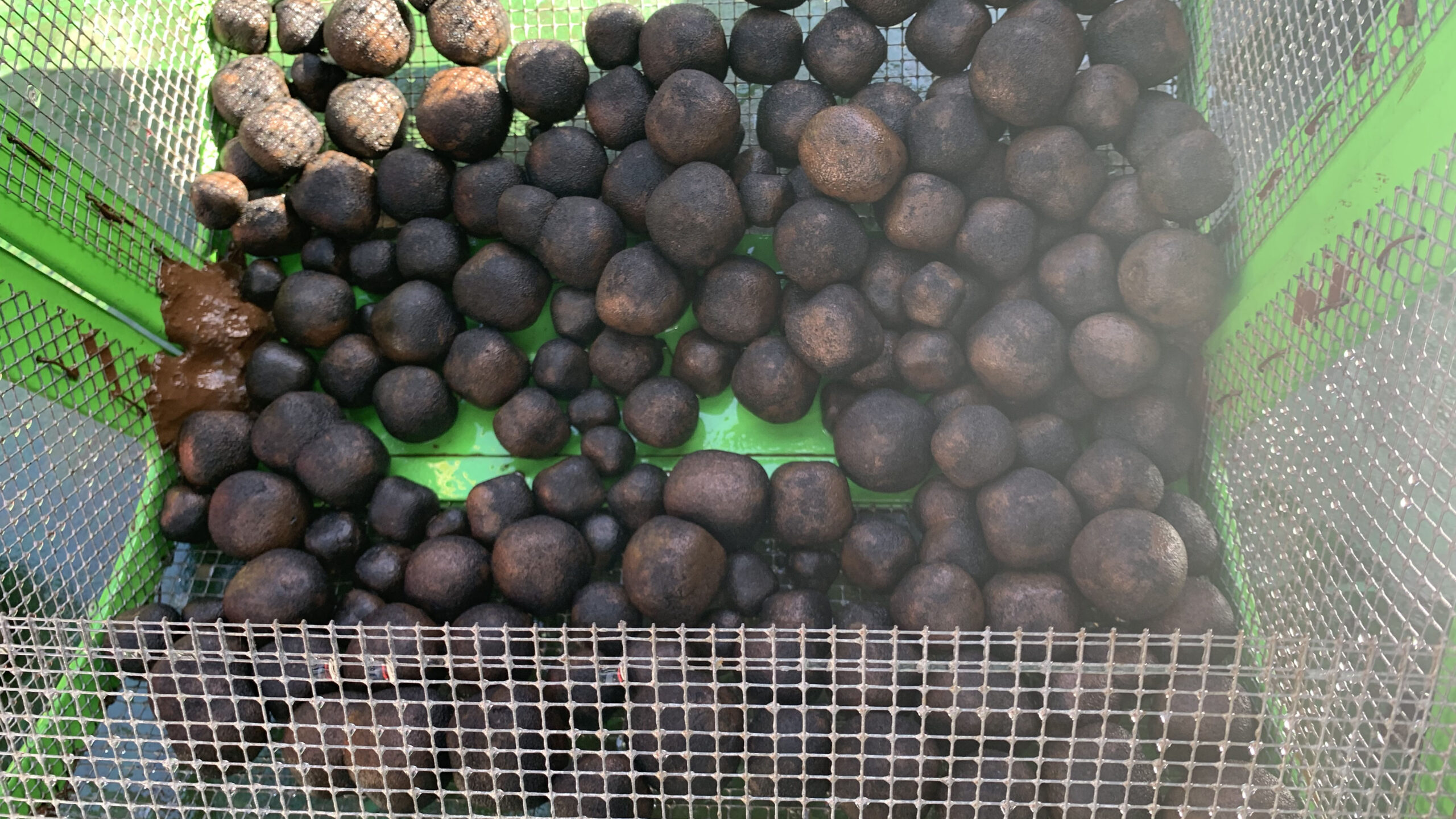Nodules: Climate change solution or ecological risk?
Thursday 23 December 2021 | Written by Caleb Fotheringham | Published in Environment, National

Image/SEABED MINERALS AUTHORITY
People keen to explore the possibility of deep sea mining see it as a way to fight climate change, while those against say it doesn’t make sense to solve an environmental problem by possibly creating a new one.
Three companies could be awarded a licence to explore the Cook Islands seabed for rare minerals.
Some nations and environmental groups have called for moratoriums on seabed mining, something the Cook Islands Government with support from the Opposition Democratic Party have vocally opposed.
Cook Islands’ seabed minerals commissioner Alex Herman said: “If harvesting takes place the Cook Islands will be contributing to the energy transition away from fossil fuels.”
Greg Stemm, chief executive officer of CIC – a company trying to get a seabed exploration licence – similarly says the metals found in the nodules are necessary to help convert the world from fossil fuels to alternative energy.
Stemm adds the metals are used in solar, wind and electric vehicles.
“If the research shows nodule harvesting can be achieved without serious harm to the environment, then the extraction of cobalt, copper, nickel and rare earths available here in these nodules could save rainforests and other environmentally sensitive areas on land,” he said.
“Currently there is insufficient metal in the system to meet the exponentially increasing demand for metals to enable the energy transition and until we reach a critical mass, which may not be for 25-50 years from now, then new raw materials must be sourced.
“If there is any possibility that it can be done with significantly less environmental impact than on land, it seems ridiculous to suggest that we should not at least be conducting research to determine the viability of ocean minerals.”
However marine conservationist Jacqueline Evans says it doesn’t make sense “to attempt to solve an environmental problem by creating a new one”.
“There are other ways to reduce emissions that are not dependent on seabed mining,” said Evans, the founder of Moana Foundation.
“Saying seabed mining is a more sustainable alternative to land mining is greenwashing because we don’t have the data to support that statement.”
Evans said sediment plumes that are caused by mining would be harder to control than on land and the impacts of the plumes are unknown.
“Seabed mining also has a direct impact on the biodiversity that lives on and around the nodules and the disposal of sediment from the ship will impact marine life that encounters it in the water column.”
Evans said she wants the Cook Islands to focus on investments that “do not solely rely on extractive activities”.
Three companies are in the process of getting the exploration licence, CIIC Seabed Resources Limited - which is half-owned by the Cook Island Government, CIC Limited and Moana Minerals.
The exploration licences are now being evaluated by a panel of 10, that will recommend to the Seabed Minister Mark Brown what companies should be given a licence. Brown, who is also the country’s Prime Minister, will then make the final decision.
Exploration licences could be approved or denied early next year and the exploration could also start in 2022.
According to seabed minerals commissioner Herman, the exploration will also mean 10 per cent of the seabed will be mapped. She said it would also mean the Cook Islands will learn more about the deep ocean environment.












































